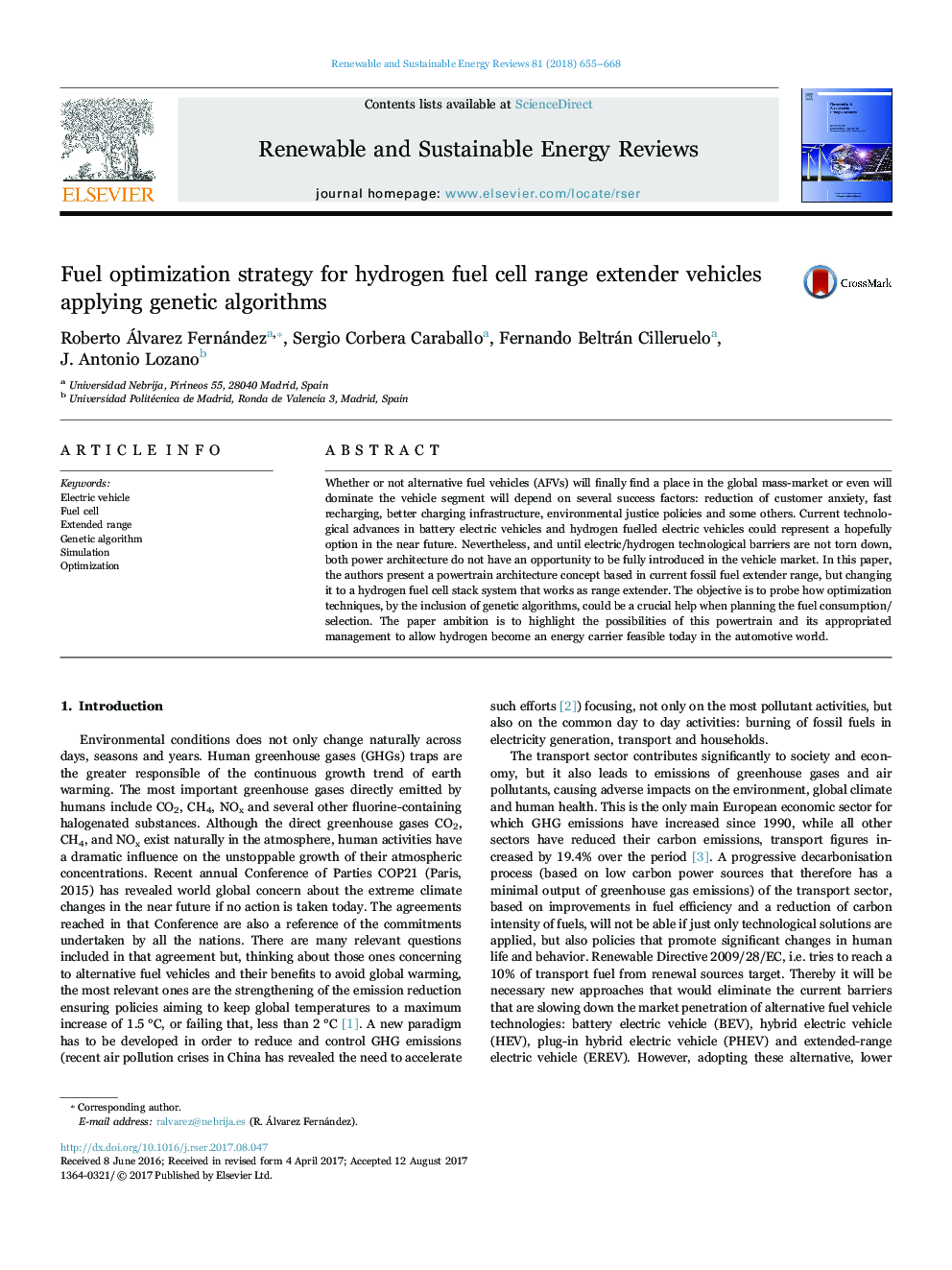| Article ID | Journal | Published Year | Pages | File Type |
|---|---|---|---|---|
| 5481988 | Renewable and Sustainable Energy Reviews | 2018 | 14 Pages |
Abstract
Whether or not alternative fuel vehicles (AFVs) will finally find a place in the global mass-market or even will dominate the vehicle segment will depend on several success factors: reduction of customer anxiety, fast recharging, better charging infrastructure, environmental justice policies and some others. Current technological advances in battery electric vehicles and hydrogen fuelled electric vehicles could represent a hopefully option in the near future. Nevertheless, and until electric/hydrogen technological barriers are not torn down, both power architecture do not have an opportunity to be fully introduced in the vehicle market. In this paper, the authors present a powertrain architecture concept based in current fossil fuel extender range, but changing it to a hydrogen fuel cell stack system that works as range extender. The objective is to probe how optimization techniques, by the inclusion of genetic algorithms, could be a crucial help when planning the fuel consumption/selection. The paper ambition is to highlight the possibilities of this powertrain and its appropriated management to allow hydrogen become an energy carrier feasible today in the automotive world.
Related Topics
Physical Sciences and Engineering
Energy
Renewable Energy, Sustainability and the Environment
Authors
Roberto Álvarez Fernández, Sergio Corbera Caraballo, Fernando Beltrán Cilleruelo, J. Antonio Lozano,
